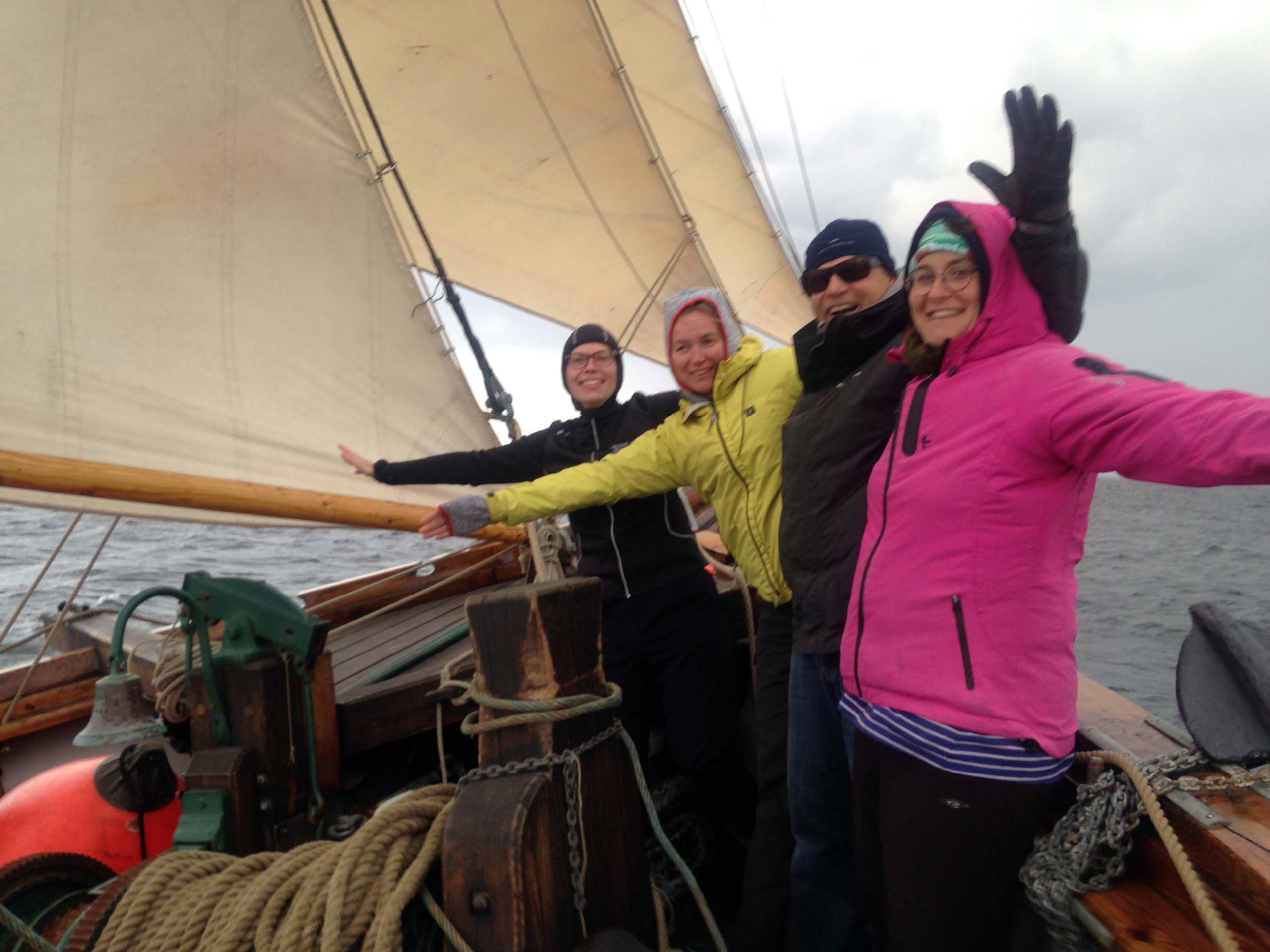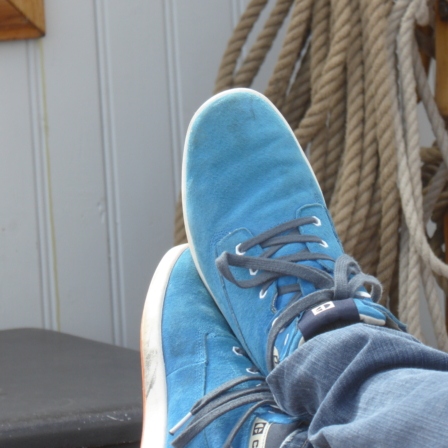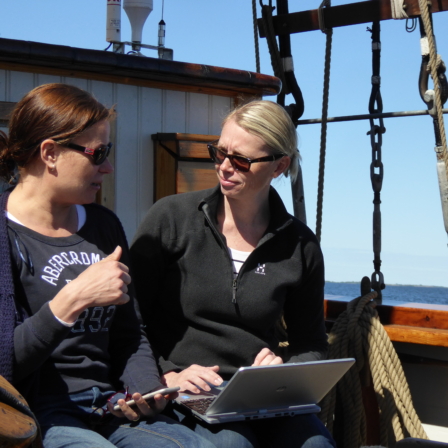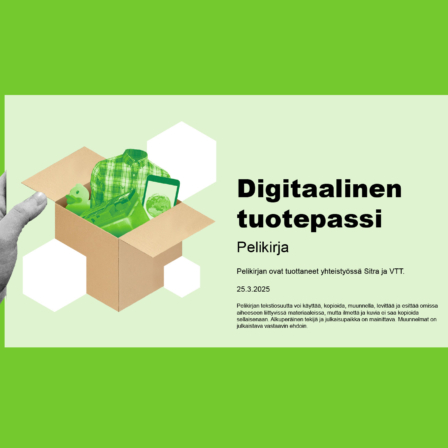A two-day sailing trip from Turku to Visby, to attend the Almedalen Week 2015, is now behind us. We chose the sailing ship Albanus because we wanted a trip which would minimise carbon emissions and be kind to the atmosphere. After all, we were headed to an event involving a discussion on the key role played by cities and mayors in combating climate change.
A common vision seems impossible to achieve at state level, but cities can act as trendsetters and harbingers of change. Sailing may seem a modest gesture on a global scale, but it meant a lot to us. We believe that all our actions count, no matter how big or small they are. What is more, wind-powered travel proved highly economical.
We were struck by the power of the wind, which led us to wonder about the sheer amount of renewable energy outside, inside and on the surface of our planet, and how little of such energy we use; particularly when you consider that 80% of the world’s energy is produced using dirty fossil fuels. As the wind filled our sails, this seemed utterly crazy.
We were delighted to hear that Finnish companies are building the world’s biggest wave power plant off the coast of Sweden. While at sea, we gained first-hand experience of wave energy.
During our voyage, the Albanus used less than 15 litres of diesel per person, making our emissions vastly smaller compared to flying. We would have consumed even less fuel if calm weather had not forced us to start the engine every now and again. To compensate, we agreed to offset the emissions caused by our voyage.
With the Mayor of Turku, the Director General of the Confederation of Finnish Industries, the Project Director for Helsinki’s Östersundom urban development, the Executive Director of the Climate Leadership Council (CLC) and a few people from Sitra on the same boat, there was no shortage of workshop topics and viable ideas on the way to Almedalen.
Aleksi Randell got the ball rolling.
“The Turku region is already home to plenty of know-how on low-carbon marine transport: Neste Oil’s biorefinery, the University of Turku’s Centre for Maritime Studies and Meyer Werft’s Turku shipyard, which builds the world’s most environmentally friendly cruise ships. We also have several projects aimed at protecting the Baltic Sea. Let’s assemble Finnish expertise on low-carbon marine transport under Turku’s leadership and build a centre for low-carbon marine transport, based on co-operation between companies, research institutes and cities – and hopefully the state,” Aleksi Randell suggested. We ran with this idea and managed to put together a first draft.
CLC’s Jouni Keronen updated us on global research into climate change. We came to the conclusion that only a fraction of states and people understand the true magnitude and speed of the energy revolution. Jouni challenged us to come up with civic promises on combating climate change: “What if a million Finnish citizens gave a personal promise and commitment to reduce emissions to a certain level, and passed this message on at work and during leisure time? This would have an enormous impact. The issue is also on the UN’s agenda, but Finland could be a trendsetter.” This idea was so tempting that I promised Sitra’s enthusiastic involvement in areas such as the development of measurement applications.
Jyri Häkämies, Director General of the Confederation of Finnish Industries (EK), gave the business sector’s perspective: big companies and many SMEs have already seized on the competitive advantage presented by decarbonisation:
“The EK is currently canvassing companies on their views on the threats and business opportunities presented by climate change. The findings will be published on Suomi-Areena. The EK intends to be a key messenger to member companies on these issues. In addition, we promise to work even harder to ensure that public contracts involve putting new solutions into practice in Finland,” said Häkämies. His words also provided us with a range of ideas on co-operation.
Project Director Ari Karjalainen of Helsinki’s new “affiliated city”, Östersundom, presented visions of the huge carbon neutrality opportunities represented by this newly planned construction. It will take decades to build the area, providing an opportunity to ride the wave of development from the outset. The entire Östersundom area has the potential to become “carbon positive”, i.e. the area could have a positive carbon handprint instead of a small carbon footprint. New innovations and operating models would be generated in co-operation with residents and companies.
We also came up with new theme-based Sitra projects aimed at building a resource-wise and carbon-neutral society. The following ideas gained most approval: activating citizens to join the decarbonisation and resource wisdom revolution, raising water-related expertise to a new level (since water shortages are a key cause of conflicts), future bioeconomy spearheads, bioeconomy communities, and enhancing the vitality of rural regions.
We had all learned something new by Sunday morning, as we arrived in the Port of Visby and headed toward the seminars. That is what happens when you pack a diverse group of brainstormers on a sailing ship for two days, with no mobile phone connections.

























Recommended